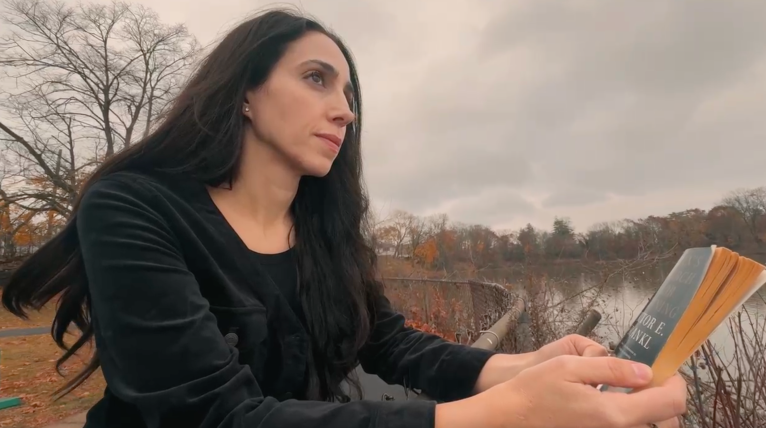
How To Measure A Good Life
Nobody reflects on their lives and concludes with “yes, this is exactly how I thought it would go.”
We measure a “good life” based on how well we adhere to trajectories. How closely what happens is aligned with our temporary, subjective past thoughts about it. The measure of a life well lived is a cultural, social concept, and it’s changed over time. The governing belief of what will make for a worthwhile existence right now, for us, is individual accomplishment (at other times in history it was religious obedience, or procreation, and so on.)
We’re not made to be self-serving in an existential way. In fact, we classify doing so as all but a mental disorder. Everything, even our most rote daily tasks, only seem comfortable if they add up to something in the end.
But we set out maximize our pleasure regardless. To aggrandize individuality in lieu of community and wholeness, and in the process, we find that instead of our passions compounding into a spectacular life, we’re empty and stressed and exhausted and twisted in mental circles trying to make sense of why things don’t feel the way they appear.
Nothing looks the way we think it will. Nobody reflects on their lives and concludes with “yes, this is exactly how I thought it would go.” The point is not to get reality to align with ideas about it, or to manipulate those ideas about the uncontrollable so we feel in power of them.
Yet the measuring stick for a good life does just that, as it’s still rooted in our most basic operating system: our survivalist instincts, which want sex and pleasure and fame and recognition and ego-augmenting attention. It’s the hit and go, get and chase, want and strive and ruthlessly steal. We’re able to dress these things up to seem civilized, when the people acting on them are in offices and grocery stores and our Tinder accounts.
Animals don’t actualize what it means to have gotten their prey or not. They don’t consider the psychological implications of a potential mate walking away. They don’t piece together their lives, or reach for “more.” Their instinctive existence works, because they don’t inherently desire to transcend it.
Animals have no need to evaluate whether or not they’ve had a ‘good life,’ so they don’t strive to be more than they are. But we do.
Yet, by measuring how much “good” we’ve done by images, ideas and clean story lines, we sorely miss the point. We always fall short.
We were not built to be more than we are. Our desire to be more isn’t a matter of being beyond our humanness, but wanting to be comfortably in it. Sages teach that we’re designed for the messiness and simplicity of everyday life – that desiring an external “more” is a mechanism of the ego. It’s not transcendence, it’s avoidance.
The way to measure a good life is by how much you still want to change it, which is proportionate to how much you inherently know it can be better. You measure a good life by your capacity to feel discomfort. The extent to which you’ve questioned yourself. How many times you’ve changed your mind. The series of dogmas you’ve adopted and left. The family you chose for yourself.
The number of coffee cups over which you’ve had funny and serious and hurtful and beautiful talks. The depth to which your empathy extends. The number of long walks you’ve taken by yourself, and journal pages you’ve filled with the incoherent thoughts. The evolution of the way you philosophize your existence. The evolution of the way you perceive other people.
The days you’ve soberly worked despite the shards of passion having dissolved. A good life isn’t passionate, it’s purposeful. Passion is the spark that lights the fire, purpose is the kindling that keeps the flame burning all night.
The number of relationships you’ve had the courage to end. The easy way out is to stay. The comforting idea is to settle. The liberation is how many times you reach for something more even though you can’t conceive of what that could be. That unnameable feeling is the mark of a good life.
You measure a good life by the time you sincerely felt the sunlight across your bedsheets in the morning was awe-inspiringly-divine. The ways you can count you were a better person than before. The ways you can count you’d like to be better in the future.
The number of things that you lost and learned how to not attach to anymore. The number of moments in which you were almost at the end of your capacity only to find that there was another ocean’s worth once you were pushed beyond the surface.
A good life is not measured by what you do, it’s about what you are. Not how many people you loved, but how much. It has nothing to do with how well things turn out, or how seamlessly the plan is followed. It’s about the bits of magic you stumble upon when you dive off path. It’s not about the things that didn’t work out, it’s about what you learn when they don’t. Those bits and pieces, awakenings and knowledge, are what build and make you able to perceive things greater than you can currently imagine. A good life is not how it adds up in the end, but what you’re counting along the way. ![]()











